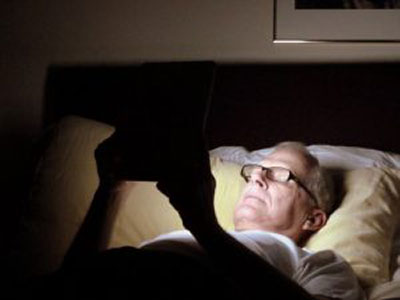Most of us could probably use a better night’s sleep. With reported increases in stress and general mental health concerns (like anxiety and depression), it is not surprising that our sleep is affected. In my own clinical practice, counselling clients often state that they can’t stop thinking at bedtime and it is hard to slow down their thoughts.
The truth is that our lives have become busier. The expectations on ourselves and from others keeps growing and the general speed of life seems to be only increasing. The insult to this injury is that we are becoming more and more reliant on our tech at all hours of the day. The worst offender being our closest friend, our smartphone, which is most likely no more than a couple of feet away from most of us at all times. So, while our lives may be spinning a little faster than is good for us, our addiction to and poor boundaries around the use of our tech devices is a major reason we are tired all the time.
Fortunately, we can do something about this. While revamping long-term bad habits can take time and the support each of us may need will vary, there are a few straightforward changes you can make today that will set you up better for a good night’s rest.
No screens at least 1 hour before bed.
There are two main reasons for limiting your screentime before bed. The first is to develop a behavioural winding down habit that will get your body used to having regular, ritualistic tasks that will tell it that it will be time to go to sleep soon. Your body is very habit-driven and little cues to tell it that it is time to do quieter things before bed will allow it to start slowing down.
The other reason you should not be looking at screens before bed is that most displays on our devices (including your TV) emit a high degree of blue light. There is a lot of interesting stuff that can be said about this, but the general idea is that all this blue light says “it’s daytime” to your brain and wakes your body up.
Your body also produces melatonin, which helps it to sleep, and melatonin production is suppressed with blue light. So, if you are watching Netflix or reading an ebook right up until you go to sleep, your body will feel like it is daytime…daytime…daytime…NIGHTTIME and not be ready to slow down. (By the way, all this daytime-nighttime talk reminds me of the daytime-nighttime bird. You should check it out. Very funny!)
There are a few science-y workarounds for blue light. One is that some smartphones have a feature that shifts the colour of the display more towards the warmer oranges. At the higher levels of the orange setting, it can affect the look of colours on your display, but you do do not need to shift it that far, nor should it be as much of an issue if you are just reading.
Apps:
- I am not sure what is available on other smartphones but the Apple feature is called Night Shift and is found in the Display & Brightness folder of Settings.
- If you have Windows 10, there is also a Night Light feature you may want to play with.
- One other laptop app is called Flux. It works the same way as the previous ones but is a third party app you can download for free.
Another anti-blue light support idea is that some people have purchased amber-coloured glasses to wear in the evening. This will filter out all light from the blue end of the spectrum. It will also make everything look yellow. I have heard of people who have tried them and they found it helpful. They would wear them to watch TV in the later evening and found they did not feel as wound up before sleep.
Turn off notifications.
Close the information faucet in the evening. Stop checking email, texts and notifications. There is nothing you can do about these things while you are sleeping and you will be better rested to deal with them in the morning. They will still be there! If you have a lot of notifications enabled on your device, consider turning on a feature to disable this after a certain point in the evening. (Apple has the feature called Downtime.)
Lighten Up the Content.
When you are winding down the physical activity, also start winding down your mental activity. If you want to read (on a device or with physical material), move away from content that is about learning and thinking. Not necessarily mindless, but something that will not put your brain into high gear. Tim Ferris has suggested reading fiction works well for him. It gives your mind a chance to relax and slow down.
There are many ways to slow down before bed. Pick one that speaks to you and try it out. By doing the proper prep work to get yourself ready to sleep, you are setting yourself up to be healthier, have more energy and focus and make the most out of tomorrow.
Sweet sleeps!
Kurt


